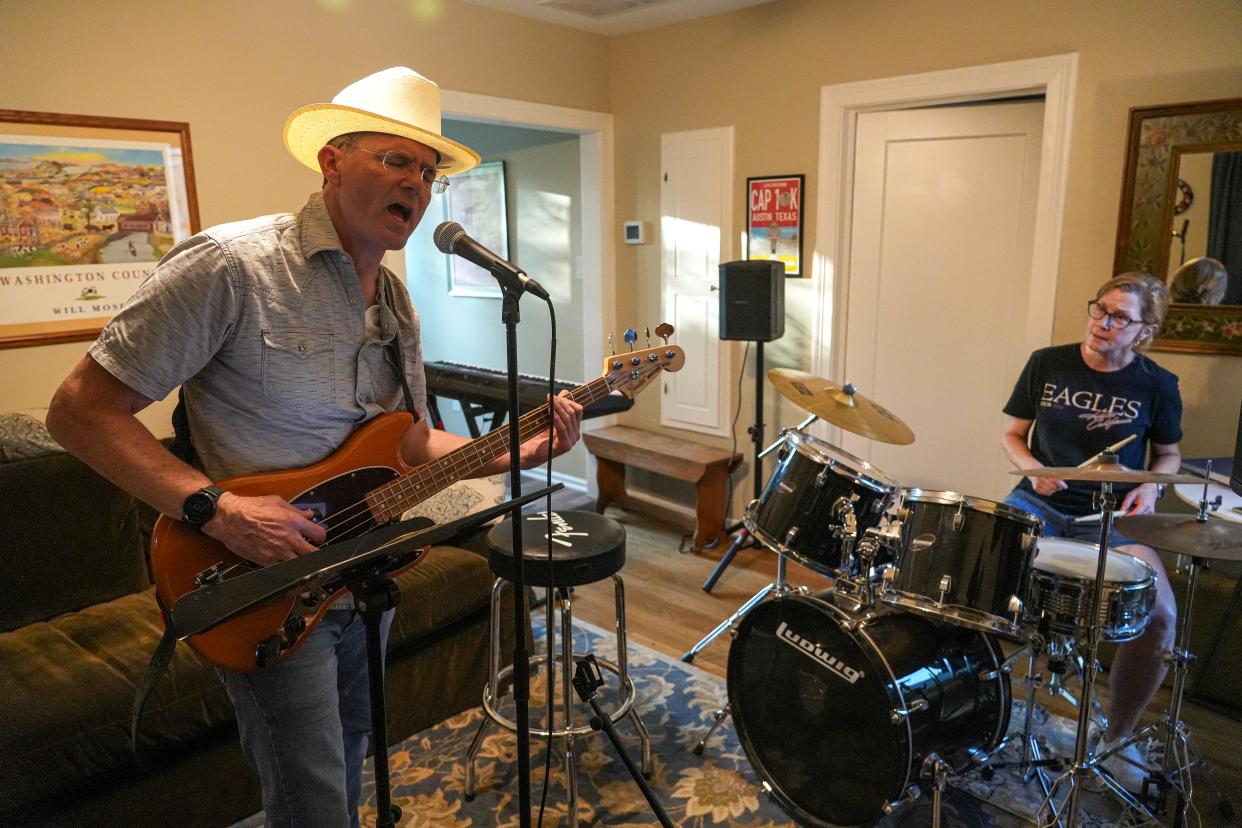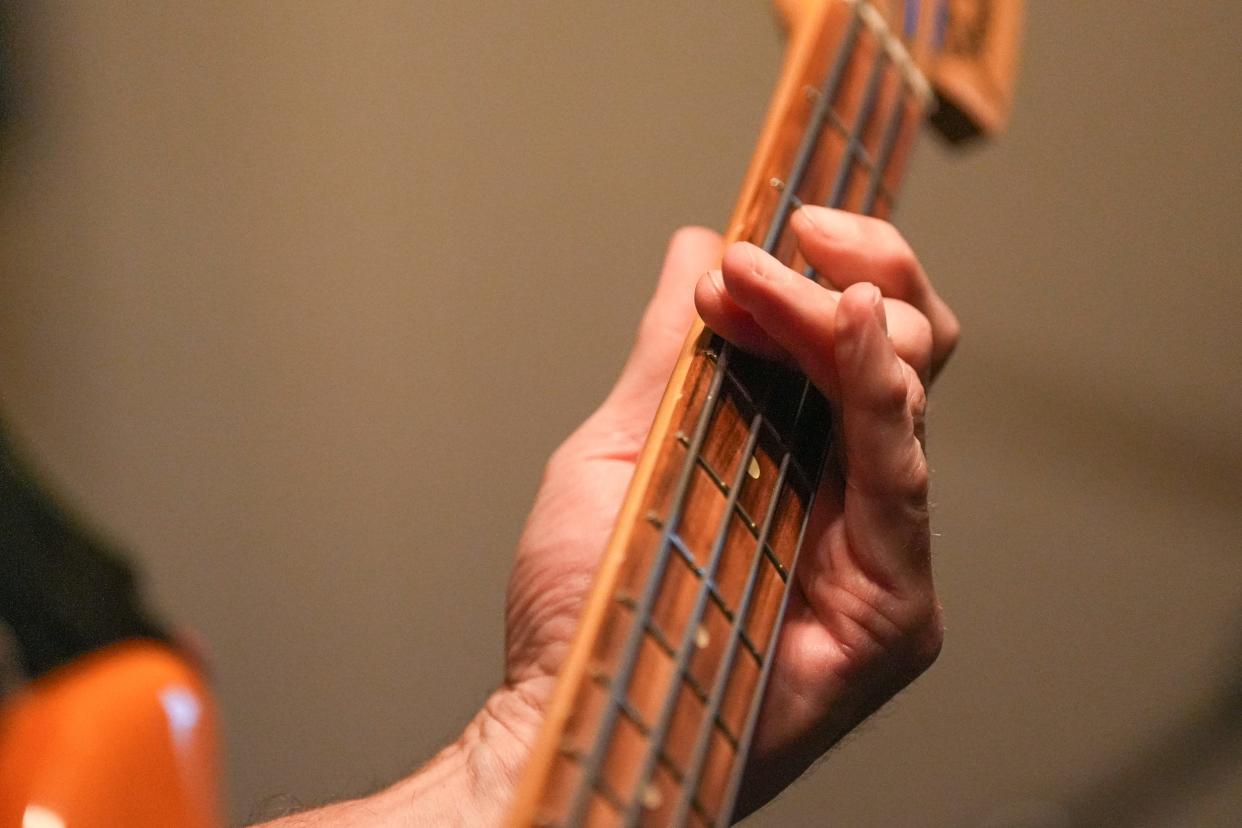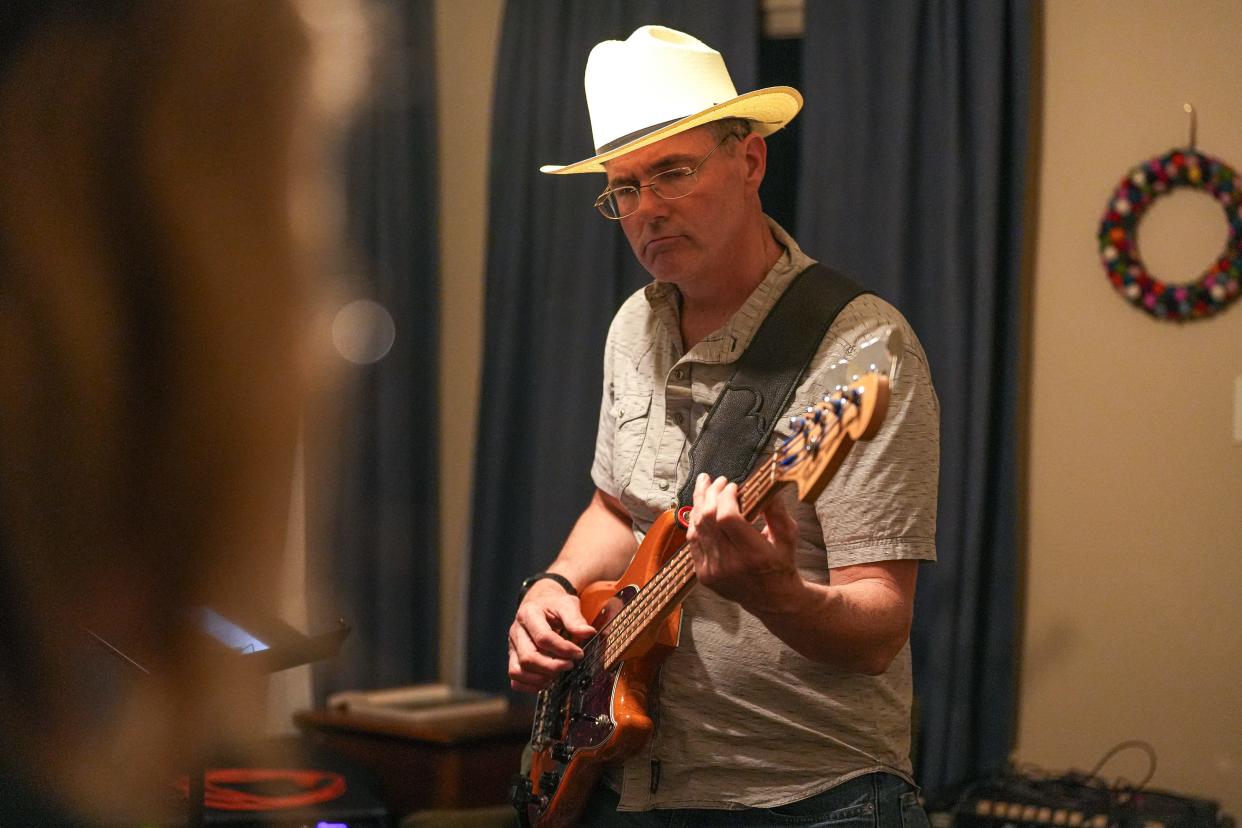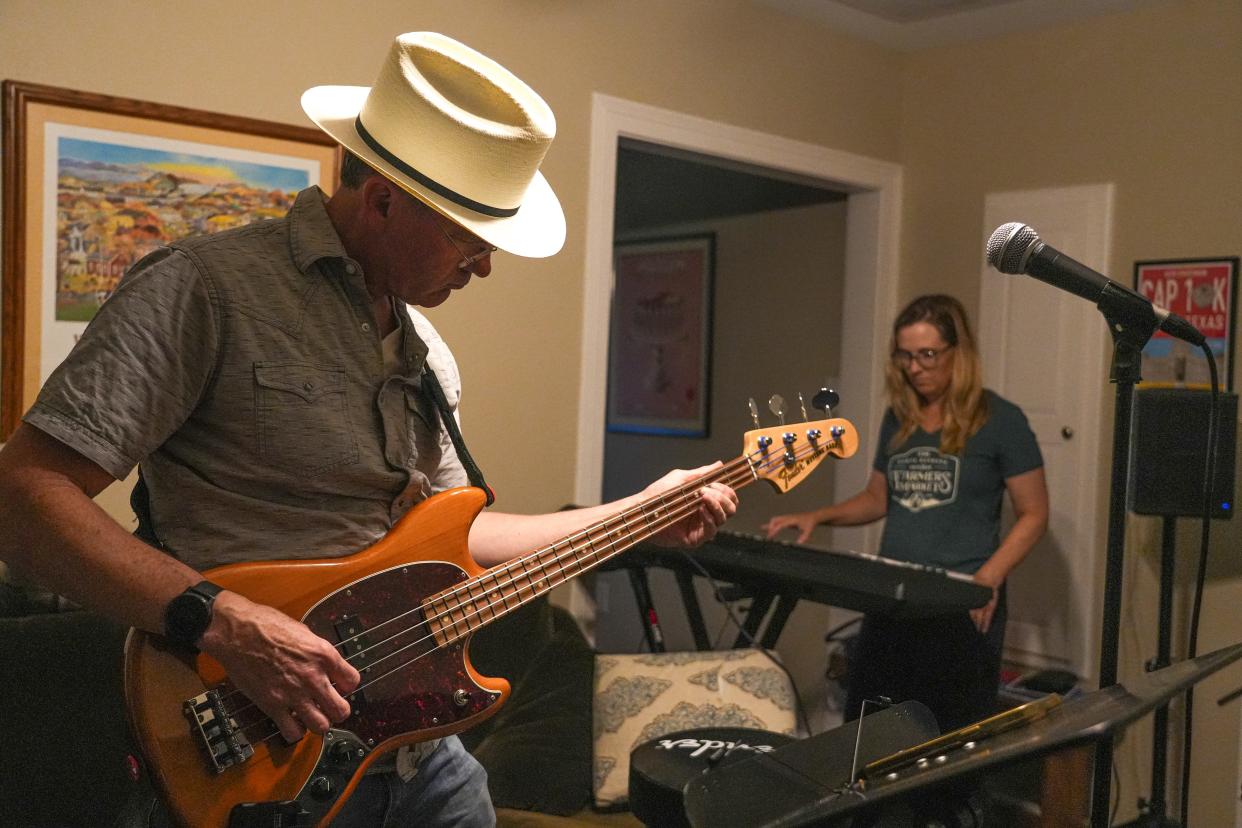Meet the University of Texas dean who learned to rock, which helps his Parkinson's
Allan Cole and his bandmates from School of Rock are practicing like they do almost every Sunday. They are gearing up for a gig on May 19 at Empire Records.
On his Fender Bullet bass, Cole is working out the chords to "Give Me Shelter," "Under My Thumb" and "You Can't Always Get What You Want" by the Rolling Stones. They throw in some Pink Floyd "Wish You Were Here" and "Comfortably Numb" and Cream's "Sunshine of Your Love." He even sings on Jimmy Buffett's "He Went to Paris."
Cole, 56, whose day job is being the dean at the University of Texas Steve Hicks School of Social Work, didn't start playing bass or any instrument until a year ago. Being in rock bands, learning new songs, is what he calls "an antidote" to Parkinson's disease.
What is Parkinson's disease?
Almost eight years ago, Cole was diagnosed with Parkinson's, a degenerative movement disorder that happens when neurons that produce the brain chemical dopamine begin to die.
With less dopamine, people with Parkinson's can have a variety of symptoms including tremors; rigid muscles; slowed movements; involuntary movements; impaired balance and more falls; difficulty speaking, chewing or swallowing; difficulty writing; depression or anxiety; and trouble with constipation or urinating.

Some Parkinson's can be tied to genetics, but many people with Parkinson's like Cole have no known family history. It's also like many diseases in which there is a spectrum of how affected a person's movements are.
Cole has young-onset (being diagnosed before 50) idiopathic (which just means we don't know the cause) Parkinson's. Young-onset Parkinson's often is something people live with for years and often is treatable, but not curable, with medications or with deep brain stimulation devices. Cole takes medications to control his symptoms, which include rigidness and involuntary movements.
Learn more: Deep brain stimulation can ease tremors caused by Parkinson's: What to know
Getting the diagnosis
Cole remembers trying to type on his laptop and seeing his left index finger twitch. He chalked it up to too much coffee, but the next day, the same thing happened.
He consulted his medical authority, wife Tracey, who told him he should get it checked out.
Cole went to his primary care doctor and announced that he was there for her to tell him that he didn't have Parkinson's or any of the other scary neurodegenerative diseases. After doing a series of tests that Cole likens to a drunken driving test, she couldn't rule out Parkinson's and referred him to a neurologist who is a movement disorder specialist.

More tests and that neurologist gave him the diagnosis and some reassurance. His doctor likened it to a family member that would be with him forever. "It's about learning to live with a family member that is a real pain in the ass," Cole said he was told.
The doctor reassured him that his life expectancy would be within six months of what it would be without Parkinson's. "That's good when your kids are 10 and 8 when you are diagnosed; when you're worried about if you're going to be at their weddings or graduations," he said.
Tracey Cole shared his relief that it was Parkinson's and not a more life-limiting disease. "I knew he would be OK. He would be OK," she said.
Read more: New robotic arm allows Parkinson's, epilepsy patients to be asleep during brain surgeries
The hardest part about being diagnosed was telling his parents and his children, he said. "It was two (of the) hardest conversations I've had."
He also worried about telling his boss. He didn't want it to affect his career or for people to pity him.
For 10 months, he didn't tell anyone outside his family, which was harder than having the disease itself. The secret "became too much to bear," he said.
Finally, after teaching a lesson on the importance of being authentic to social work students, he identified himself as a person who has Parkinson's disease.
Becoming a Parkinson's advocate
There was a freedom in everyone knowing he had Parkinson's. He began to build connections with the Parkinson's community and began to write about his disease. He created the PD Wise website, on which he and others with Parkinson's share stories and resources; and he published books and poetry about Parkinson's.
He advises anyone newly diagnosed to get a labor lawyer because there are legal protections and to find a neurologist who is a movement disorder specialist.
Last month, his documentary with director Vanessa Reiser, "The Only Day We Have," debuted on KLRU, Austin's PBS station. It reflects his new attitude to focus on today and not be so hyperfocused on the future, which is the way he lived before his diagnosis.

In the documentary, he interviews people with young-onset Parkinson's. One is a marathoner and a tap dancer, one is an American Ninja Warrior, one is a former NBA basketball player. "There are so many people out there living in their own way," he said of the people with young-onset Parkinson's that he has met.
He recommends getting connected to a network of people with Parkinson's as well as being around people without Parkinson's.
"Parkinson's is not exhaustive of who I am," he said. "I need things outside of Parkinson's to feed me."
For him, picking up the bass and being around people who like to create music together feeds him.
Read more: Brain surgery ends tremors for veteran with Parkinson’s
Learning to rock
His daughter Meredith, 18, encouraged him to take his first School of Rock class, Rock 101. Meredith has taken music lessons since she was 4, and, after one recent performance, Cole remembers telling her how proud he was of her and that he regretted never learning to play a musical instrument.
Her response: Stop making excuses and call the director of School of Rock, Travis Foster.
In February 2023, he took that first class on playing bass, which is "the coolest instrument known to man," he said.

The bass has brought him a whole new group of people. "I really value relationships and opportunities to be together," he said. "Music is a way to do that."
He's in several bands, including the one in this session of School of Rock, which is focusing on the Rolling Stones.
Tracey Cole has watched music open up a whole new world to her husband, who finally found a hobby. "He has something that brings such joy," she said. "He comes alive when he plays his music."
He plays every day, he said, "because I love it."
The value of music on Parkinson's
The Parkinson's doesn't disappear when he plays music, but he jokes that the dyskinesia — the involuntary movements that look like the wiggles — is just him being a rocker.
Parkinson's helps him improve his dexterity in his hands, which become rigid. The bass has become his occupational therapy, specifically for his weak left hand, which he uses to make the chords on the bass' fretboard and often becomes rigid. Singing has become his speech therapy as he tries to preserve his voice.
He also uses music as his stress relief. Stress can make his Parkinson's worse. Forgetting to eat or skipping medicine doses also make it worse. His bandmates are partners in reminding him to take care of himself.
He found music at 55 years old, he said. "I wish I'd found it at 15," he said. "It's been a special part of my life."
It is his antidote to Parkinson's.
"Parkinson's takes over time," Cole said. "It's the big taker. If you can find things that can take less and maybe give you something to kind of balance that, to me that's life-giving."
This article originally appeared on Austin American-Statesman: How a University of Texas dean uses music to help his Parkinson's
